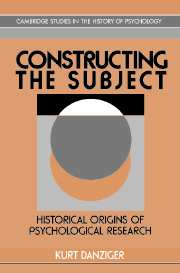Measuring Minds
This book explores the origins of the American intelligence testing movement. It follows the life and work of Henry Herbert Goddard, America's first intelligence tester and author of the most popular American eugenics tract, The Kallikak Family. The book traces the controversies surrounding Goddard's efforts to bring Alfred Binet's tests of intelligence from France to America and to introduce them into the basic institutions of American life - from hospitals to classrooms to courtrooms. It shows how testers used their findings to address the most pressing social and political questions of their day, including poverty, crime, prostitution, alcoholism, immigration restriction, and military preparedness. It also explores the broader legacies of the testing movement by showing how Goddard's ideas helped to reshape the very meaning of mental retardation, special education, clinical psychology, and the 'normal' mind in ways that would be felt for the rest of the century.
- The first full study of the early American intelligence testing movement and all the controversies it inspired
- The first study exploring the ways that intelligence testing transformed the very meaning of mental retardation, special education, clinical psychology and the 'normal' mind
- The first biography of Herbert Henry Goddard, America's first intelligence tester
Reviews & endorsements
' … excellent … should be read by anyone with serious scientific or political interests in intelligence and its measurement'. The Times Higher Education Supplement
'Beautifully written and always interesting. This is a sensible and charitable book. Most psychologists could learn a thing or two about it.' The Psychologist
'This book is a magnificent reconstruction of Goddard's life and work.' Ethnic and Racial Studies
'Measuring Minds works on multiple levels. Most importantly, it is enjoyable to read. It presents the gripping story of a man who built an enormously successful career and then found himself rather suddenly assigned the part of the incompetent scientist blinded by right-wing prejudice. Secondly, Measuring Minds informs the reader not only of the early American intelligence test movement but also of the history of child study and the history of eugenics.' British Journal of Psychology
Product details
April 2001Paperback
9780521003636
478 pages
228 × 153 × 30 mm
0.65kg
Available
Table of Contents
- Introduction: motives, meanings, and contexts
- 1. Spirit and science: faith, healing, and mission
- 2. 'A little child shall lead them': educational evangelism and child study
- 3. 'Psychological work among the feeble-minded': the medical meaning of 'mental deficiency'
- 4. Psychological work in the schools: the statistical meaning of 'subnormality'
- 5. Causes and consequences: the Kallikak family as eugenic parable
- 6. The biology and sociology of 'prevention': defectives, dependents, and delinquents
- 7. Psychological work and the state: reformers, professionals, and the public
- 8. Psychological work and the nation: the political meaning of intelligence
- 9. Leaving Vineland: popularity, notoriety, and a place in history
- Epilogue: psychological legacies, historical lessons, and luck.








